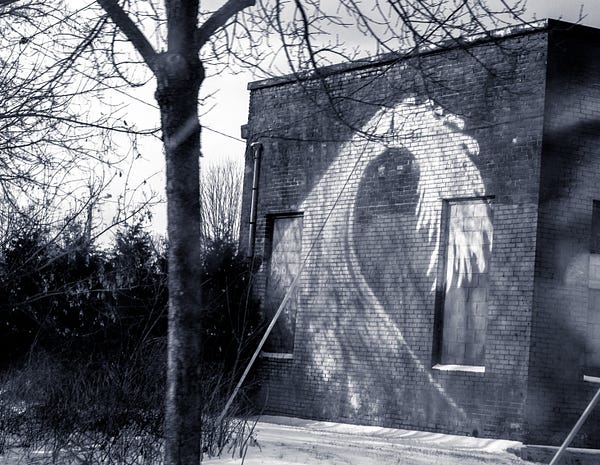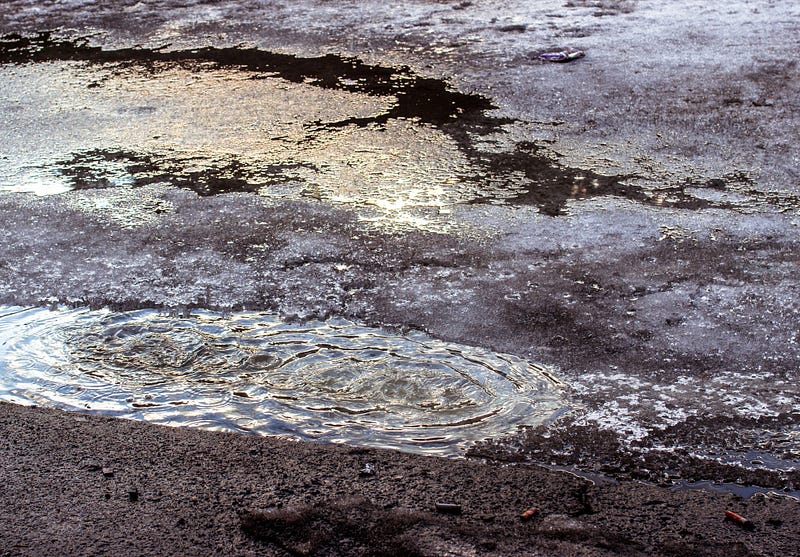Review of Chappaquiddick (2018)
Profiles in Cowardness
Mr. Stoddard: You’re not going to use the story, Mr. Scott? Mr. Scott: No, sir. This is the West, sir. When the legend becomes fact, print the legend.― The Man Who Shot Liberty Valance
“In a word, I was too cowardly to do what I knew to be right, as I had been too cowardly to avoid doing what I knew to be wrong.”― Charles Dickens, Great Expectations
“They fuck you up”― Philip Larkin, This Be The Verse
John Curran’s Chappaquiddick is the story of one of the great political scandals of the 20th century which began on the gateway to a small island off Cape Cod with this Native American name. A young Sen. Edward Kennedy drives off a bridge and leaves his passenger to die in the submerged car. It is a melodramatic plot. The married, sole surviving heir to a great political dynasty leaves the scene. He stays silent for nearly half a day while a beautiful, young, single woman dies a horrific death. Unfortunately the film is stagnant. This is an amazing achievement, in the worst possible way. One is given the grist of high drama and manages, through inept artistry, to produce the bland gruel of a public service announcement. Perhaps Curran, and the writers Taylor Allen and Andrew Logan, would defend their stylistic choices with bromides about “honesty”. Unfortunately not even the realism is “real”. None of the formidable women in the family, the matriarch or the Senator’s sisters, play any role whatsoever in guiding the response to the events. There are numerous encounters that serve as opportunities for plot exposition rather than a honest rendering. Are we to believe that the Senator, reeling from guilt and shame, manages to quote pithy family historical exposition when faced with his enraged father? Does it ring true that the bulk of the Senator’s encounter with the ingenue is composed of maudlin self-pity?
No, these creations shoehorn the story into an easy-to-consume narrative rather than an honest attempt at recreating events. This leads to speculation about the creative team’s motives. Is this, as the authors claim, a daring attempt to dramatize a story that has been suppressed by dark forces? Or it is a masquerade of righteousness hiding the overt monetizing a sensational story? There is a tale to be told about Chappadquiddick that rights the wrongs. This isn’t it.
There are brave moments amidst the morass of wooden plot twists and contrived dialogue. Jason Clarke deserves credit for a wonderful performance that delivers a balance of pathos and revulsion. He has mastered Sen. Kennedy’s physicality and blend of confidence/vulnerability. This film would be unwatchable save for Clarke giving this tortured figure a strange combination of being BOTH a scared little boy and a sociopathic bully. The risk of undertaking this role should also be noted. There are scores of very powerful people who take offense at a theatrical drama that raises troubling questions about the integrity of a beloved friend and those who support him. As an example Michael Chiklis spent years in career limbo after playing John Belushi in Wired, which documented the SNL star’s decent into drug abuse. Clarke is not alone in taking risks. One can only imagine Bruce Dern’s confidence in agreeing to play the stroke-victim-patriarch, Joe Kennedy who has, literally, half a dozen WORDS in the entire film. His mastery of expression and gesture is every bit an equal to the rendering of the beleaguered son. Despite being nearly mute and completely paralyzed, Dern creates an unforgiving stern master who will except nothing less than complete obedience. This is the stuff of ancient Greek myth, brought to life on Cape Cod. Never has a son confronted such a disappointed father since Jack Nicholson, the out of work rough-neck, faces his wheelchair- bound, music-conservatory-director dad in Five Easy Pieces. Clarke and Dern are diamonds amidst a sludge-pile of tailings, which comprises the rest of Chappaquiddick.
The creative team makes the unfortunate artistic choice of focusing on Sen. Kennedy’s defense against an overbearing father and the legacy of his three dead brothers. The title sequence covers the exposition of the elder siblings, each who died a martyr for their county. Joe was killed in a volunteer mission while a WW II pilot. John died while serving as President and Sen. Robert Kennedy was assassinated while pursuing the nation’s highest office. Any one of the three would have been a tough act to follow. Now imagine our anti-hero, having blotted the family name, facing the ultimate taskmaster, his fiercely self-made father. It is a compelling story, except everyone already knows it. There have been hundreds of books and films about the family. What does Chappaquiddick add to the often told story? Nothing. It is true that the collective memory of the incident has faded. The ticker taker at the movie theater, a man in his early thirties, referred to the film as “Chap-AQUATIC”. I asked if he was joking and his response was he had no knowledge of the water-bound scandal. Given the general amnesia, is there a purpose in highlighting the character-flaws of this renowned politician? One might have made that argument in the decades the senator was active. Unfortunately digging up the horror after half a century delves into tabloid voyeurism, rather than an honest assessment of the event.
A better film might have drawn on the larger story of what makes people follow such men, rather than the minutia of the accident. It is interesting gossip to see how the powerful family closed ranks, but is this surprising? It is titillating to ponder the relationship between Mary Joe and the emotionally overwhelmed young senator. Does it do justice to her story? Does the creative team fall into the trap of exploiting the tragedy? The filmmakers have let it be known that the surviving relatives of Ms. Kopechne approve of the film. Certainly one can understand the anger of a the family in light of Kennedy’s official punishment. He served no jail time and was given a suspended sentence for leaving the scene of the accident. It is not surprising that those who guard her memory would welcome revisiting this tragedy and highlighting the Senator’s abominable behavior. But are the filmmakers capitalizing on the family’s need for vengeance in the process of hawking their movie? Is the film’s treatment of Mary Jo, in reality, yet more victimization?
The interaction between the politician and the opaque young woman focuses on the Senator’s troubles. The audience is led to believe their brief time alone was spent with Sen. Kennedy’s bearing his soul due to the difficulty of his station. Her record as an effective political operative for RFK and her good standing with the rest of the family are indicated through clumsy exposition prior to their encounter. Yet when the two are together she is merely a foil for the Senator’s self-pity. One assumes her career was anchored in the zeitgeist of idealism which was sparked by the Senator’s older brothers. But what did she think of the Senator? There is the prurient question of whether there was attraction but, more to the point, did she view him with pity or pride? Was he a pale imitation of his older siblings burdened by carrying the torch? Did she feel he had the ability to proudly uphold the legacy? She barely knew him but what were her gut feelings prior to the tragic encounter? What was her standing with the other women who had been key strategists in the RFK Presidential run? They were all gathered at the cottage for a party when Ms. Kopechne and the Senator casually left on their fateful journey. How did these women react when it became apparent that their co worker was left to die while the Senator failed to call the authorities? These questions are the stuff of drama. They would have given shape to Mary Jo’s tragic demise. Instead the filmmaker’s centered on the least interesting, and not coincidentally most famous, group of people, the enablers.
When the crisis heats up the father’s old guard of advisors plucked from the best of JFK’s team, McNamara and Sorenson, lock horns with Sen. Kennedy’s callow staff. Curran chooses this as the heart of the “drama”. Each “team” out-does the other in mendacity. Righteousness is squeezed through a public relations sausage machine that places the family’s political prospects as the primary concern. In the end a compromise is struck whereby the Senator’s idea of giving a nationwide address is accepted but his words will be carefully crafted by the father’s allies. Meanwhile all the local law enforcement and judiciary officials are cowed into giving the Senator a suspended sentence. The Kopechne family acquiesces to the situation. Certainly the filmmakers are right to point to the injustice of special treatment for a privileged chosen son. It is unfortunate, however, that their was no shading of the motivations of the boosters. The larger crime is clearly the corruption of the system to the detriment of an innocent. Everyone rushed into the breach to save the Senator’s career at the expense of justice for this young woman. Is the creative team guilty of the same crime?
The quality of this drama would have been relegated to limited TV distribution were it not for the star power of the principles involved. By giving short-shrift to the seemingly incidental characters, the writers and director harness the spectacle of Mary Jo’s death for their own ends. The hordes of people who came to the Senator’s defense seem at best toadies, and at worst, enablers in a criminal enterprise. Revealing this within a reasonable period after the fact might have stirred the pot enough to assess blame. Unfortunately dragging this story up from obscurity after half a century is an act of self-aggrandizement, rather than some bold call for “justice”. The filmmakers are engaged in the suggestion of ‘truth-seeking’ when in fact it’s merely watching a slow motion car wreck. This falls inline with the great Hollywood tradition of making a “bold statement” after the dust has settled. The indictment of McCarthyism was made years after that Senator had lost his power with Elia Kazan’s A Face in the Crowd. Lest we not for forget Kazan had indulged in A DEFENSE of this monstrous person with ironically a better film On the Waterfront at the hight of that Senator’s worst abuses. During the Vietnam War Hollywood tapped John Wayne to star in The Green Berets, a hagiography to these group of American Special Force soldiers. It was only after hostilities had concluded that mainstream features questioned the fighting with features such as Coming Home and Apocalypse Now. Curran, Allen and Logan take up the mantle against Sen. Kennedy five decades after the event with many of the principles long deceased. The deeply flawed best friend, Joseph Gargan, who supposedly tried to inspire the Senator to “do the right thing” died of old age a few months prior to the opening. Interesting that the filmmakers didn’t seek out comment from his family during the advertising blitz. That would require bravery, something lacking in the movie’s opportunistic creators.
The irony is that Chappaquiddick might have had bearing on contemporary events. Had the film bothered to look at the poor woman in the car or her friends or the legion of small town officials we might have a better handle on the perils of hero-worship within the context of politics. What makes people compartmentalize criminal behavior? Is this phenomena an obvious evil? Should the private foibles of office-holders be of concern? Perhaps there is a double edge to the legacy of JFK. Did his Presideny creat too much mystic around an institution that is truly more than a sum of its constitutional provisions. It is the only office, save the VEEP, in which every single American, from Hawaii to Maine, cast the same ballot. The elasticity of the emotional attachment to government officials has grown exponentially with the rise of mass media. We are in endless elections with 24/7 waves of tales of malfeasance. How does this effect not only those in office but the loyalists who defend their candidate?
I was an intern for Sen Kennedy after the events that took place in this film. While I worked in his office I focused on the policies and never questioned the events of a decade earlier. At the time there was rampant speculation of a Presidential run. Strangely, I am now bewildered by many of the current President’s supporters, who seem immune to the revelations of his transgressions. Perhaps we share something that I refuse to acknowledge. Maybe a better film about the people around the event might have expanded an understanding of our current politics. The name of the film turns out to have resonance beyond the incident. The area was named after a Native American word “cheppiaquidne”, which means “separated island”. That is a wonderful shorthand for the Senator’s predicament, as well as the one we all find ourselves in. We are adrift in a never-ending sea of separation. Maybe we can be linked by finding courage to do what is right even when the weight of the world pushes us in a different direction. Perhaps we can all form an alliance based on the universal respect for those who chose righteousness over expediency.
In looking back let us remember the woman who left the comfort of her small town to embrace the tumult of political upheaval. Her mentor was murdered, but she contemplated returning to the fray. Let us also reflect on the scores of regular folks whose lives were suddenly thrown in the harsh spotlight of public scrutiny. The friends, the bystanders, the provincial officials, the first responders who were all suddenly cast, through no fault of their own, as a nefarious bit players in a national tragedy. Their lives were forever judged by what happened on a summer night in July 1969. These stories have more resonance than the tawdry conduct of powerful people trying to spin a false narrative for self preservation. The filmmakers were seduced by celebrity. They might have produced a great tragedy but instead drew upon the siren call of gossip. This project might be a wise career move. However contemplate the fate of the protagonist. He ended up as the Lion of the Senate, but at what cost?




